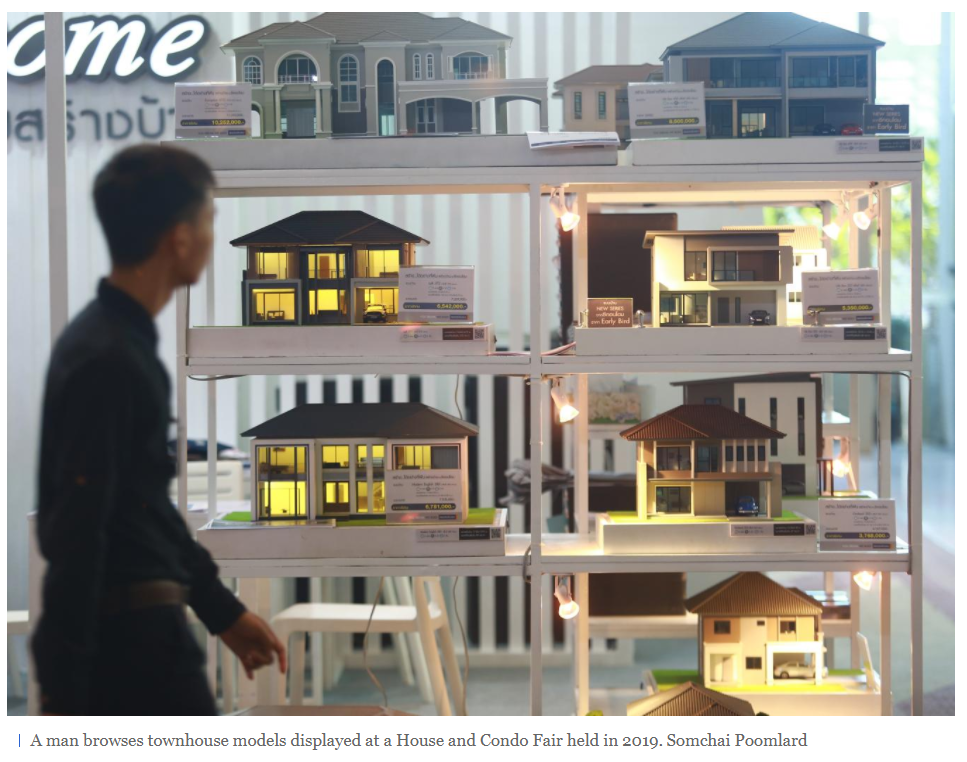Thailand: Housing developer sentiment marks big downturn in Q3
As the outbreak continues to escalate, housing developer sentiment for the next six months is expected to reach its lowest point in the third quarter of 2021 since the first quarter of 2009, with non-listed firms showing the greatest concern.
Vichai Viratkapan, acting director-general of the Real Estate Information Center (REIC), said the expectations index of housing developers, which reflects their sentiment for the next six months, will dip below the median (50.0) in the third quarter this year.
The second-quarter expectations index fell from 58.8 in the first quarter to 50.5, the lowest since the first quarter of 2009, shortly after the 2008 subprime housing crisis.
Mr Vichai said the decline in the second quarter was sharp and significant, reflecting developers’ pessimism in the property business in the future, only slightly above the median.
“The level clinging to the median may be attributed to the prime minister announcing his pledge to reopen the country by mid-October. However, there is still concern over controlling the pandemic, which up to this point the government has been incapable of achieving,” he said.
According to REIC, the expectations index of listed developers dropped from 63.6 in the first quarter to 55.7 in the second. The index of non-listed firms was 42.7, down from 51.5 in the first quarter.
Mr Vichai said non-listed firms are not confident about the future of their business as they don’t have the advantage of extensive funding, investment in project expansion or new project development compared with listed developers.
“Buyers’ confidence in listed firms is higher than for non-listed developers as a result of their competency, particularly during the pandemic,” he said.
The expectations index started declining in the fourth quarter of 2018 after the Bank of Thailand announced late that year it was imposing new lending curbs in the second quarter of 2019.
The index dropped from 60.5 in the fourth quarter of 2018 to 51.5 in the first quarter of 2020, before picking up to 51.8, 52.9, 54.4 and 58.8 in the second, third and fourth quarters of 2020 and the first quarter of 2021.
The index fell to 50.5 in the second quarter this year after the third wave of the pandemic hit in April.
In the second quarter this year, the housing developers’ sentiment index for the current situation rose slightly to 46.4 from 46.3 in the previous quarter and the fourth quarter of 2020.
However, the index had been below the median of 50 since the second quarter of 2019, the same period when the new lending curbs became effective.
“The pandemic has been out of control since the second quarter of 2021, which has had a great impact on the country’s economic recovery,” said Mr Vichai. “As a result, developers are concerned about the current and future situation.”
The listed developers’ sentiment index for the current situation was 51.1 in the second quarter of 2021, higher than 49.4 in the first quarter.
Listed developers said they were confident about the current situation, largely because of an increase in sales, new investments and new project launches, particularly in low-rise housing projects to replace those sold and condos, which saw a decline.
The non-listed firms’ sentiment index for the current situation was 39.3, down from 41.7 in the first quarter of 2021.
REIC began a quarterly questionnaire in the fourth quarter of 2007, polling listed and non-listed housing developers in Bangkok, Nonthaburi, Pathum Thani, Samut Prakan, Samut Sakhon and Nakhon Pathom.
The survey on current and future situations has six questions covering revenue, sales, investment, employment, cost of development and new project launches.
Weight for data processing is 60:40 for listed and non-listed firms, respectively, as more than 60% of ongoing projects were developed by listed firms. The median is 50, which means an index above 50 is positive and one lower than 50 is negative.
Source: https://www.bangkokpost.com/business/2162359/housing-developer-sentiment-marks-big-downturn-in-q3


 Thailand
Thailand




